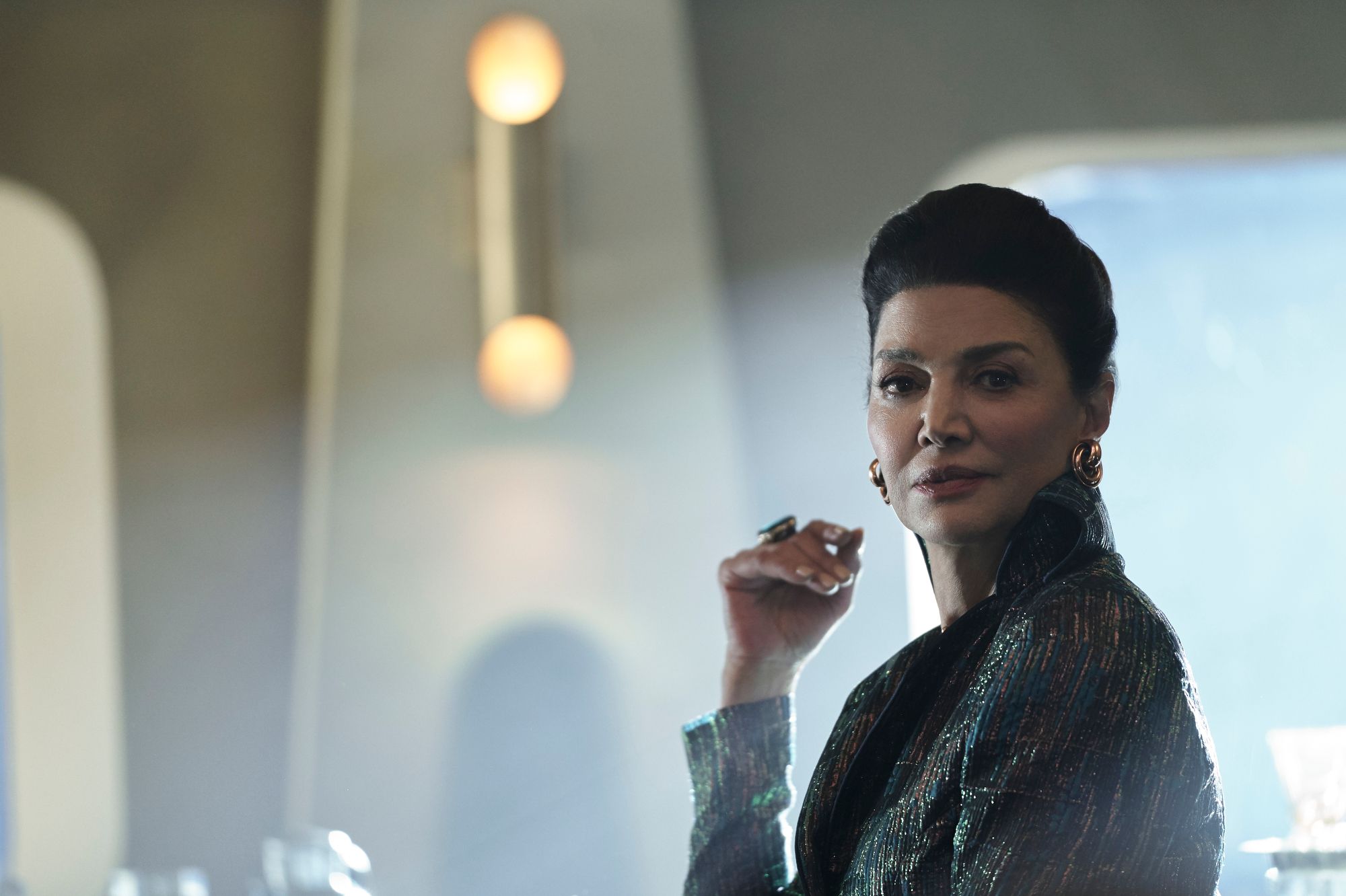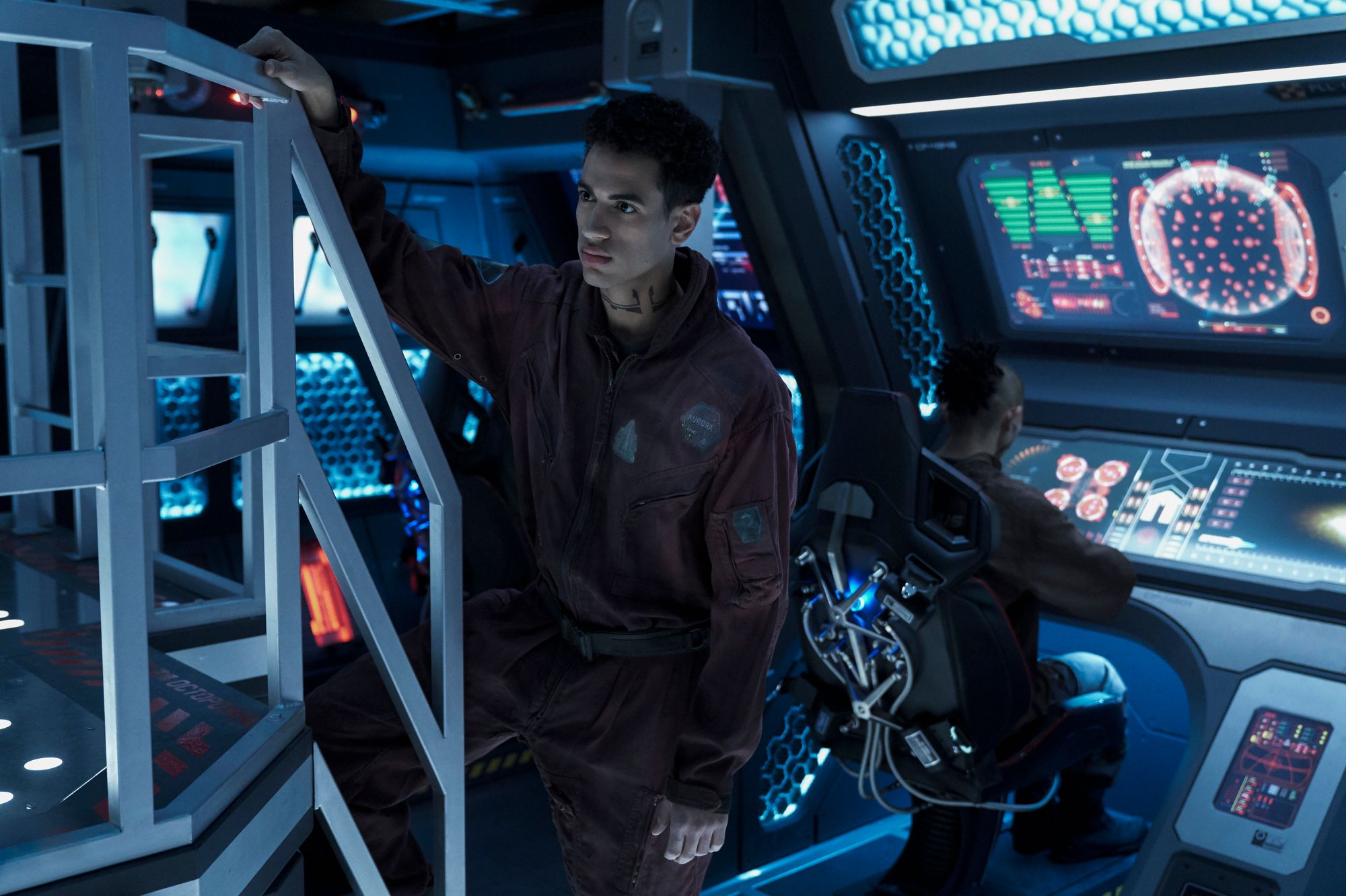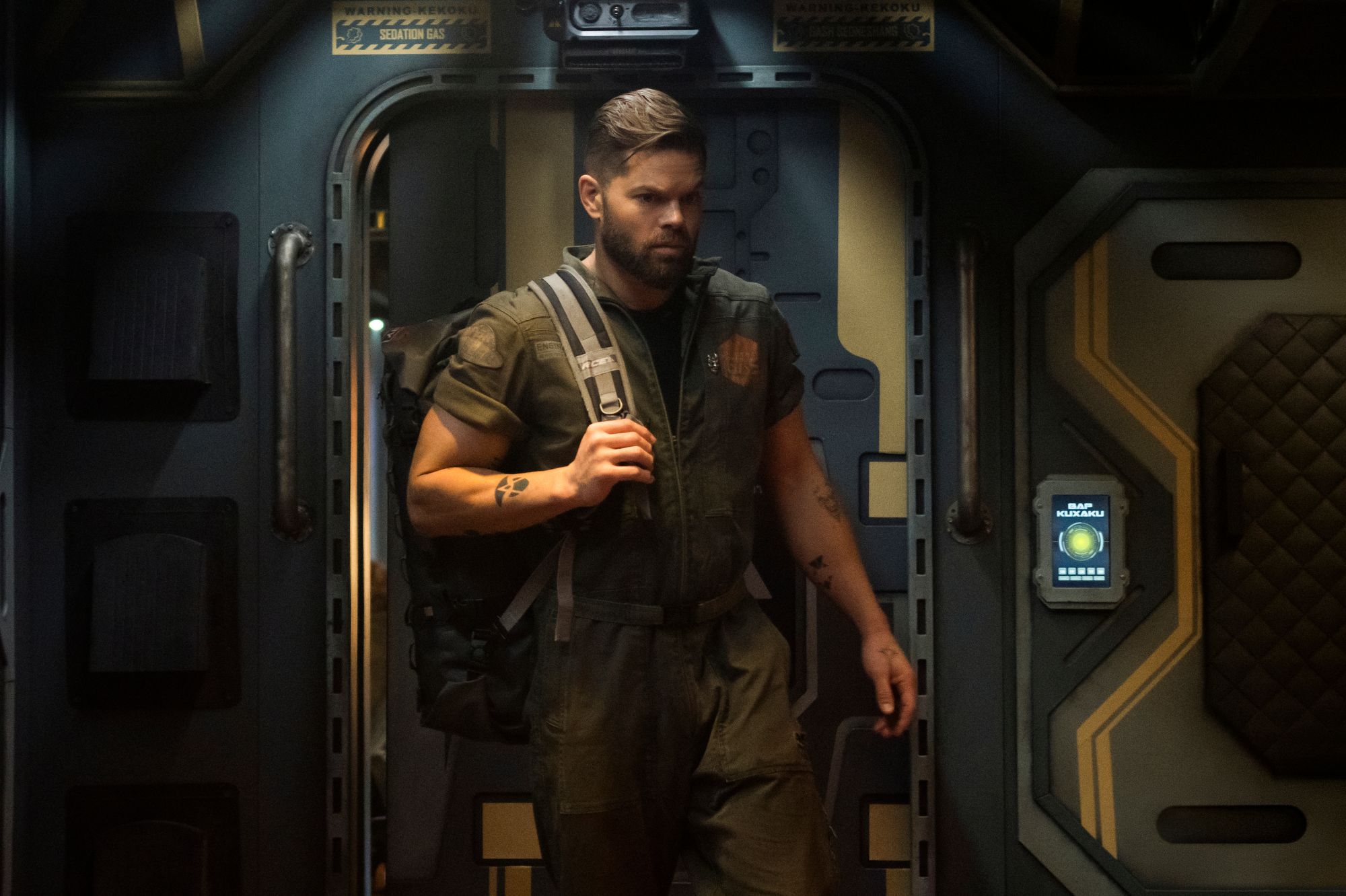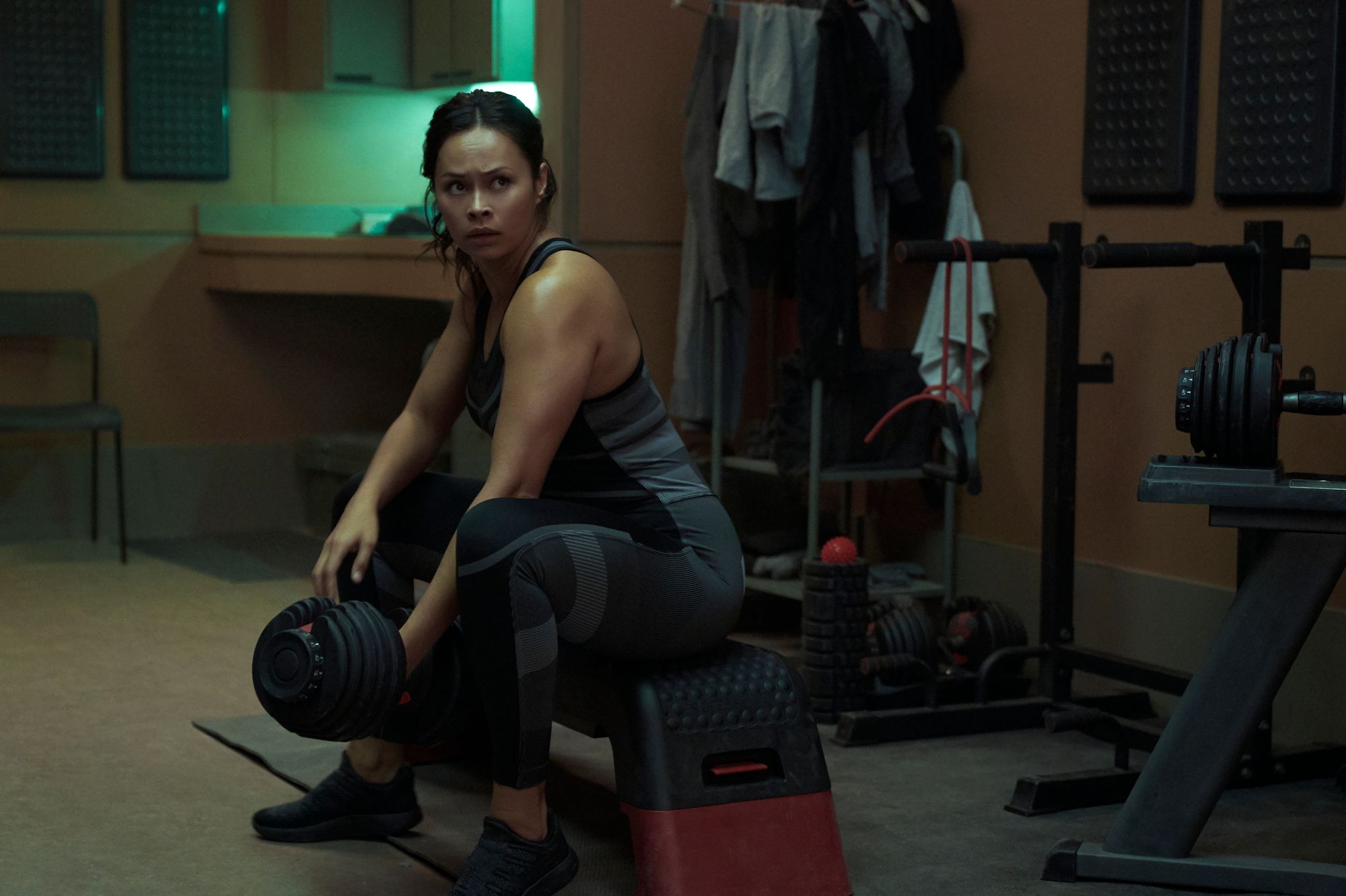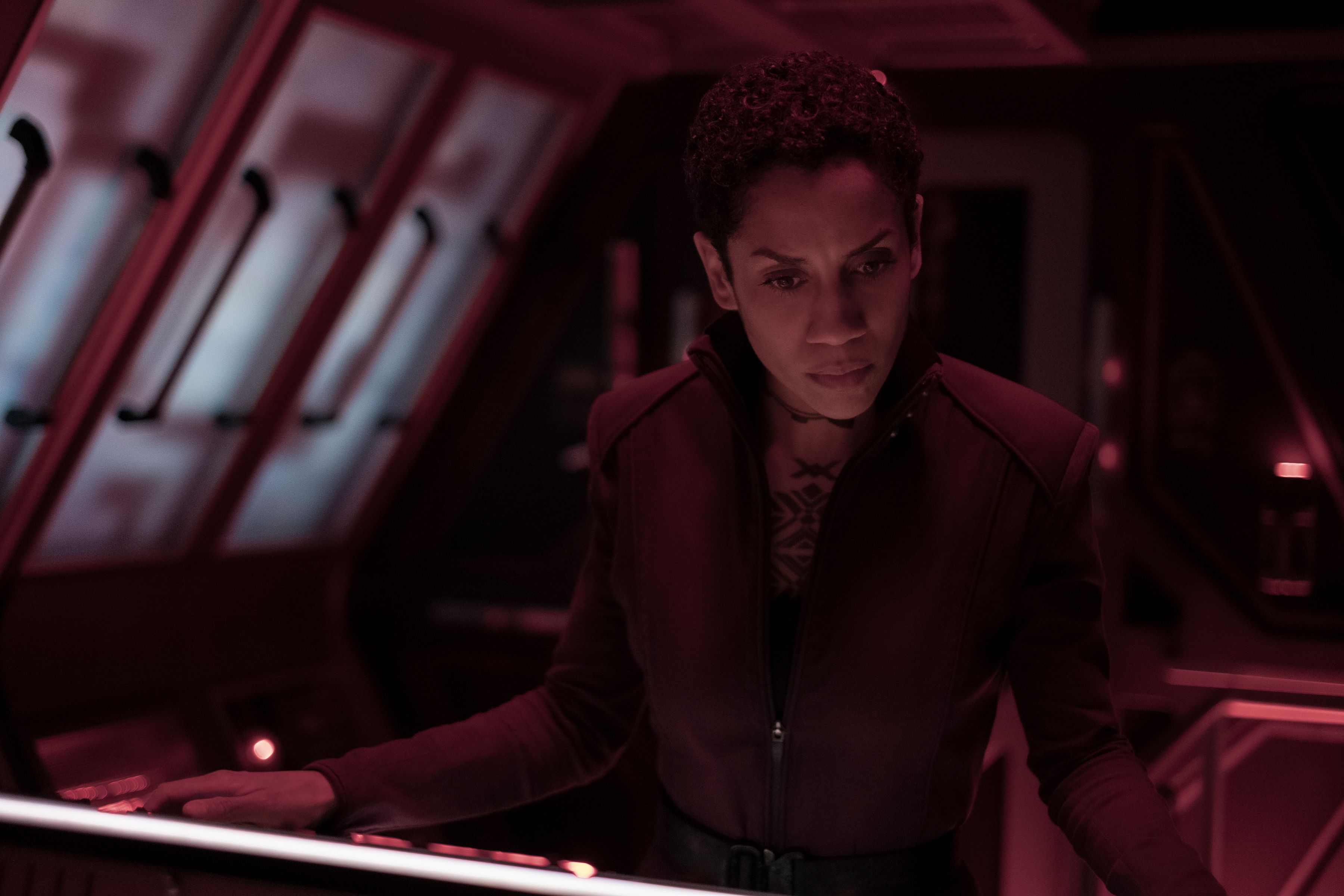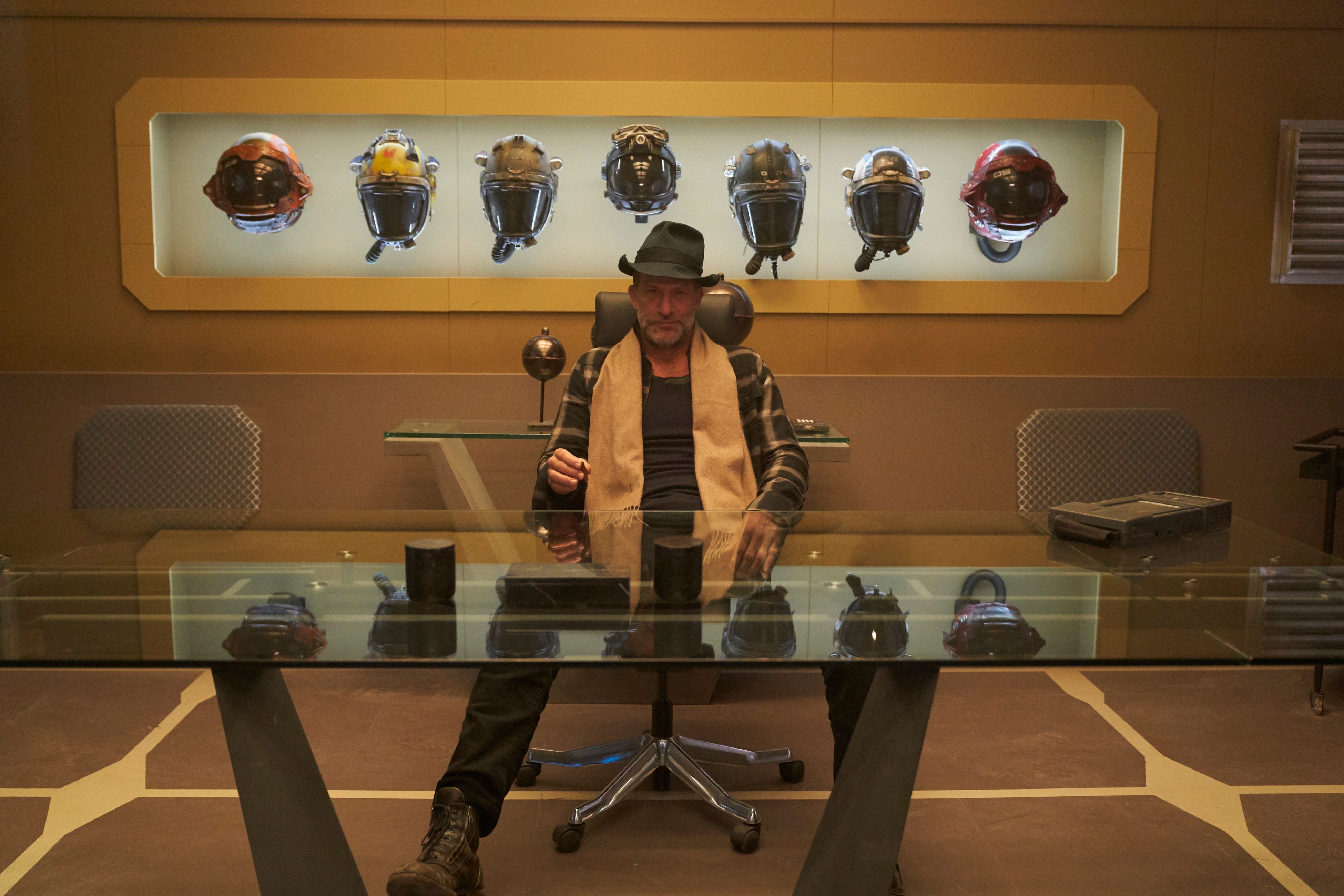The gentlemen behind The Expanse are, as you'll see below, delightfully frank about what it's been like to produce five seasons of the epic sci-fi drama. Writers Daniel Abraham and Ty Franck (who wrote the source material as novels under the pen name James S.A. Corey), as well as showrunner Naren Shankar, have weathered the show's dramatic history for years now — from being canceled by Syfy after Season 3, to being revived by Amazon for Season 4, to now working up to the planned conclusion in Season 6.
The story of the disparate men and women struggling to survive in a far-off future that sometimes feels too familiar to our present is a rich and complicated one, and no, the executive producers don't mind at all if you compare it to The Wire as a result. Below, Shankar, Abraham, and Franck reveal why they're excited about the show's weekly rollout this time, how the Season 6 news affects their storytelling plans — especially in connection to the book series — and why they wanted to begin Season 5 by spreading out the crew for their own individual breakout stories. They also reveal what it was like to work with Thomas Jane as a director on Episode 3 of the season (and address whether or not Miller is really gone for good this time).
Collider: To start off there, talk about the decision making that went into not launching the whole season at once this year?
NAREN SHANKAR: It was actually something we talked about in Season 4, because one of the things that was really always important to us was connecting with the fans, with the Twitter watch parties that we would do, and that was always a fun thing for us. And so we kind of missed that a little bit when we went to Season 4 with the full 10 episode drop. We had discussed it with Amazon in Season 4 and for a variety of reasons, it didn't happen but it happened now. Now they've done it with The Boys, they've done it with us. I think they're doing it with some of their other shows, I'm not 100 percent sure about that. But I think it's a great way to stimulate conversation because people get to watch it, they get to talk about it, they get to get other people up to speed. We're really looking forward to it.
I mean, in terms of constructing the season when you were writing, were you conscious of that being the release strategy?
SHANKAR: We didn't actually know that it was going to drop with this pattern when we were constructing the season, so it just ended up being a very natural thing to do. The first three episodes for streamers are typically very important. I think their analytics are like, if people stick around for those first three, then they tend to watch the whole season. But yeah, we didn't know we were going to have the weekly pattern this year.
So another big thing that's come out is that you're ending with Season 6. At what point in writing Season 5 did you know that that was where you were going to aim for?
DANIEL ABRAHAM: We didn't get our Season 6 order until we were almost done with post on Season 5. So, I mean, most of the time, at least in my experience now after doing this for six years, you never know that you're getting another season. You have to operate under the assumption you'll get another season, but you generally don't get that order much earlier than we got this one. And actually, getting that next season order before the current season has aired is actually a real luxury, it's really nice. But yeah, I mean, you don't know. When we were writing Season 5, we had no idea whether we would even ever get a Season 6. We were hopeful, and when we did get a Season 6, now we get to pay off a lot of stuff we built into Season 5. But you don't know when you're doing it.
TY FRANCK: And in fairness, the sixth season version of this was something we've been talking about since the first time we got canceled. So, there wasn't a lot of scrambling with this one.
Because you also have the books going on and the books aren't complete yet, it's a slight Game of Thrones situation — except that Daniel and Ty, you're in the writer's room a lot. How has being on the show affected your relationship with the books?
FRANCK: The main thing it has done, is make us really late on the books.
ABRAHAM: That's a load balancing we haven't quite managed yet.
FRANCK: Yeah, we were really consistent on our delivery dates right before we started working on the show, and then we have gotten increasingly inconsistent on our delivery dates.
ABRAHAM: One more, we've just got to land one last one, we're going to be all right. We're good.
SHANKAR: As Ty and Daniel have said many times, they look upon the show as a very, very expensive commercial for the books.
ABRAHAM: Yeah — you spend a few million dollars on an advertisement, you can sell literally thousands of books.
SHANKAR: That's right, it's amazing.
Are you planning how to coordinate the end of the book series with the end of the TV series?
ABRAHAM: Coordinate it? No.
FRANCK: Oh, God, no. It looks like it will come out gracefully. It looks like we're probably going to have the last book come out pretty close to when Season 6 drops — and that's just a happy coincidence.
ABRAHAM: I'm just going to light a candle and move on.
FRANCK: Daniel and I are very Heath Ledger Joker here. We're not planners.
ABRAHAM: We just do things.
But I mean, I guess the big question is, how closely will the events of the final book parallel the events in the finals episodes?
FRANCK: Not at all, because we're ending the show in Season 6, which is book six, and the final book is book nine. So there will be...
SHANKAR: Season 6 would have to be about 45 episodes long.
I mean, it's either 45 episodes long, or it's a very compressed version of that story — could you do that?
FRANCK: I don't know, that there is a way to gracefully do that. I think that would be a challenge.
SHANKAR: I don't know if we'd want to do that. We've compressed before — in Season 3, we compressed two novels, essentially a good bulk of one novel. And then the entirety of Abaddon's Gate into the back end of the season. I don't know if it's something you'd want to do with books seven, eight, nine.
ABRAHAM: And there's something to be said, also, for doing this part of the story well, and then... The IP is not dead, it's not gone away. If there are other options later, then there other options later.
Could the final episode end with a card saying, like, "to find out what happens next go to the books?"
ABRAHAM: I think that would be great because it would get me more money.
FRANCK: Yeah. I think when people watch the last episode of Season 6, they will feel like a satisfying story has been told.
ABRAHAM: Yeah.
FRANCK: It is a story that leaves possibilities open for the future, depending on what Alcon decides to do with the property going forward. There's a lot of stories that can be told, but I think if you watch through Season 6, you're going to feel like... We completed the story that we've been telling for five seasons.
SHANKAR: Yes.
ABRAHAM: I think that's true.
So, let's talk about Season 5. Based on the first three episodes, the funniest thing is... And it's not just because we go to Baltimore and it's not just because Chad Coleman is there. But I got a lot of weird vibes of The Wire in the first three episodes. And I'm wondering if that was intentional?
ABRAHAM: It's not just Chad Coleman. We also have Frankie Faison, who obviously, was in The Wire for five seasons-
SHANKAR: We love him, by the way. That was amazing.
FRANCK: Yeah. He was awesome.
ABRAHAM: What a cool dude anyway.
SHANKAR: He was.
FRANCK: I think anytime that you can compare us to The Wire, we're only going to wind up looking better as a result of that. I don't think there's any downside.
Was that at all part of the conversation?
ABRAHAM: I don't think you can go in and say, I know, let's try to be The Wire. I think that's a doomed project from the start. If you look into it, if you do something that is good enough and evocative enough and rich enough to be compared to The Wire, you've done well.
FRANCK: Yeah. And when we picked Baltimore as Amos's hometown. I think we did that before I'd even seen The Wire.
ABRAHAM: That was a decade ago.
SHANKAR: I thought that was deliberate. Okay.
FRANCK: No, it wasn't a Wire reference when we picked it. It was just sort of a happy accident.
The other reason I mention it is that in the first few episodes, the crew of The Rossi is split up, which is a very kind of Wire move. And what was important for you about basically giving all of these characters their own, essentially own storylines, pretty separate from each other?
ABRAHAM: Separate from each other, but also intimately interconnected with each other. Because you could argue that it's the most broadly spread narrative that we've done, but it's also the most tightly woven narrative that we've done because everybody's responding to exactly the same events. But the structure of the book... And given the fact that the season is 10 episodes long, part of the trick was, how do we get everybody a part? And then in the movement of the seasons they're coming back together — the idea of situating everybody, spreading everybody out, with this overlying tension of the rocks coming in, the audiences understanding that.
ABRAHAM: We talked a little bit about The Looming Tower, it's like you know what's about to happen, you know what's coming and the people there don't quite see it entirely. So, it gave us a chance to delve into everybody's personal side, I think, in a deeper richer way than we have up to this point. That felt very cathartic when you get all of the stuff at the same time, the rocks are hurdling towards us and then that changes things.
Well, and there's also the advantage that if everyone stays on the Rossi, you don't get to learn all this amazing stuff about Amos's character or Naomi's and get that back story.
ABRAHAM: There's a lot that you get to do when you're this deep into a project, that wouldn't have worked earlier. I mean, if we split the Rossi crew up in Season 2, it wouldn't have meant anything. But having spent four years with them as a unit and building those relationships between them and with the audience, and then getting to broaden out into the world and make the world bigger through their eyes and through their experience — that was awesome.
So you have Thomas Jane coming on to direct Episode 3 — do you feel like Miller's story really is done at this point?
ABRAHAM: Yes.
This time, for sure?
ABRAHAM: We fired him into the sun at the end of Season 4. So yeah.
FRANCK: Well, we fired him into Venus in Season 2. We killed this guy a lot.
SHANKAR: They killed this guy a lot.
What was it like working with him as a director, especially because it was his first time doing TV, it seems?
ABRAHAM: I thought it really brought an interesting perspective. I mean, Naren can speak to this from a showrunner perspective, but as a writer, Dan Nowak was the writer of that episode, and Dan and I spend a lot of time together in the office when we were producing that season. Watching how Thomas attacked the material as an actor, I found very interesting, he had a little bit different way of attacking the written word and attacking how he was going to portray the scenes and bring the emotional part of the writing to the fore in the way he shot the scenes. I mean, a director who is also a long time actor just has a different perspective on it than a director who has never acted. That's cool to see.
FRANCK: And he also is probably the director that we've had with the most intimate knowledge and understanding of the show — just because he was there the whole damn time.
ABRAHAM: Yep.
FRANCK: That's not something that you get for free.
I have a very important question, which is at any point on set, did he wear any sort of hat?
FRANCK: Always.
ABRAHAM: Yeah.
FRANCK: He is a man who likes a hat.
SHANKAR: Amazon I think has behind the scenes stuff — he's always in a hat.
FRANCK: The better question is, yes he always has the hat, but does he ever wear shoes?
SHANKAR: That is the question.
To wrap up, I feel like one of the things that the show does so well is really keeping everything so grounded — even when you have the more fantastical elements coming in. What has been the key for you in finding that sort of balance?
ABRAHAM: I'm going to go back to when Ty and I started this project and the kind of keystone things that we were cultivating, and the movie Alien, where you have two guys going through a spaceship, arguing about who's getting screwed by the union contract. The ways in which you can have recognizable people in an unrecognizable universe, it's a brilliant tool. And it winds up giving us sense of realism and of recognizability, that we've managed to keep, I think, through the books and into the adaptation.
The first three episodes of The Expanse Season 5 are streaming now on Amazon. Future episodes will premiere Wednesdays.

